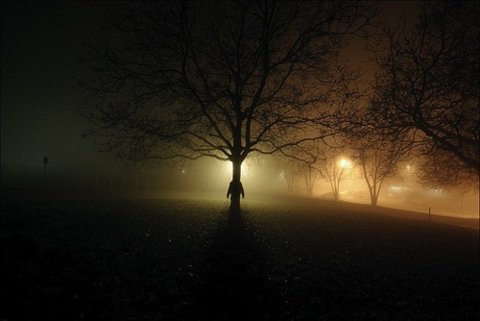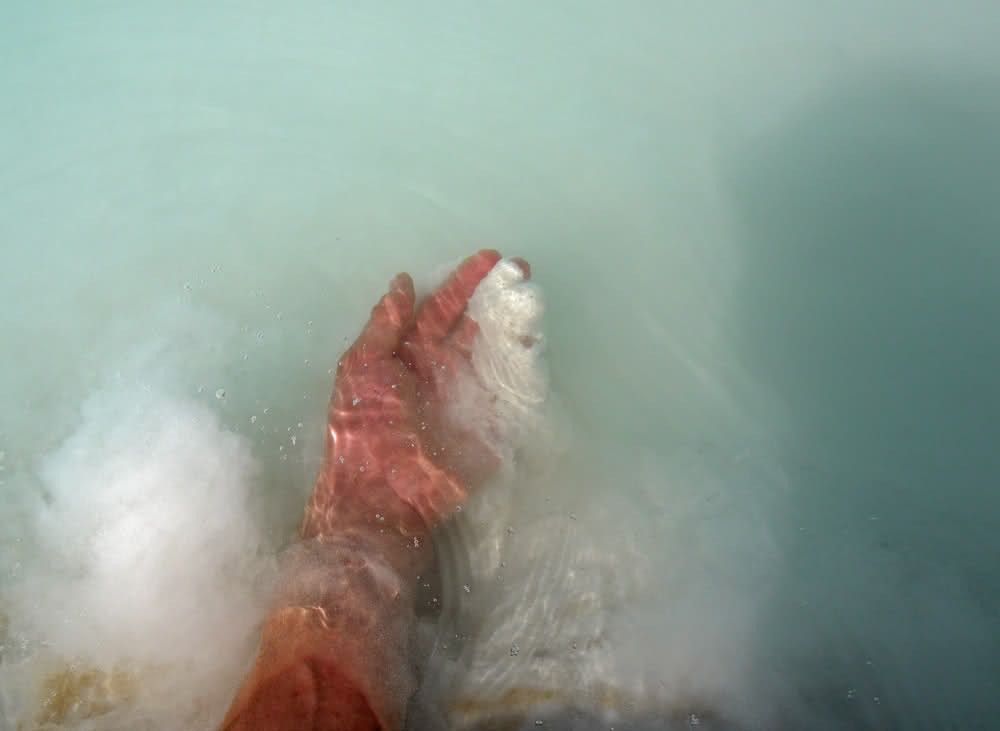Remixology written by Jorge Lozano (curator of this program) for Fabulous Festival of Fringe Films, June 2019
Let’s say there is no beginning. No way to start to look at this artist’s work. Or worse: there is never only one movie because this artist is forever putting his hand out to add something more, to steal another picture, to record another sound fragment, in order to continue his remixology.
This program is a temporary arrangement, composed of fragments that are also ephemeral, many have been made and remade several times. The composer is also a decomposer, it seems he can’t stop himself from returning to his previous selves and trying to sharpen up a note, to make something brighter or clearer. Even when a work is finished, it’s not finished, it’s only reached another stage. Perhaps it’s a celebration of process above all, as a single movie morphs over time to wear many different faces. So many of his movies have been stretched to include, forced to admit even: foreign agents, unwanted texts, layers of pictures heaped over top one another. This construction site is a place where ghosts are welcomed, ventriloquists are waiting to put old words into new faces and bodies.
He doesn’t use found footage. He uses stolen footage. This program is a thief’s journal. He steals with joy, with delight, with an easy happiness. What image is not already part of his archive?
These stolen movies also include his own movies of course, his own footage and field recording archives. For the past half dozen years he has decided to return to each of his more than 100 movies and give them a digital polish, or else throw them away. Some of the movies in tonight’s program are from past decades, but they have been recut in the past couple of years. No doubt he will have to do it again. And again. When the argument, the agon, the struggle for meaning has grown slack from disinterest, then it will be time to roll them all out to the digital dumpster. There is no place for permanence, for settling, for the establishment of a stable body of work, or a reliable back story. It’s as if these pictures were part of a chase scene.
Found images/sound, archival images/sound, along with his own recordings become “re-mades” that are reorganized. A remixing of worlds exposes new meanings, secrets that were long buried in the original material, in the original encounters. Who can look quickly enough, or slowly enough, to catch up with these secrets?
Contrary to predictable cinemas, or even the traditions of the untraditional, the too-often rehearsed conventions of artist movies, we find ourselves immersed in a risk-taking visual experiment. Each film and the program as a whole, to quote one of Mike’s movies: “is a picture of the world where we are also pictures.”
You can see that he loves to cut. You can feel it, both the urgency and the joy. The joy of someone at work. As viewers, we find ourselves navigating porous systems of meanings that move in and out of focus. We are carried away by the unexpected, returned to our own bodies, surrendering to inconclusive narratives that morph simplicity with complexity and back again.
He makes experiments in cinema to keep himself alive. Make no mistake. This philosophical project is also the work of survival. I can see Mike’s history and the history of artist’s media in this work, the potential of artist’s cinema to build patterns that matter. Recognizing the impossibility of knowing these movies is another form of happiness, another gift.
Enjoy it.
Remixology
Lions 1:48 minutes 2018
Commissioned as an intro for artist’s shorts by the Alchemy Fest in Scotland. They hooked up with Regional Screen Scotland, an org that brings work through the Scottish Highlands and Islands with a large truck called The Screen Machine. I was asked to make a “how to watch experimental film” piece, between 1-3 minutes long, which would run before a program of 3-4 shorts, and then the feature film. Tour sponsors weren’t impressed though, so this one went straight to Vimeo.
In the Future 3.5 minutes 1998
Originally made at Charles Street Video in 1998, recut 20 years later at home. Part one of the nine-part feature Imitations of Life (2003).
“In a tightly constructed barrage of old Hollywood images and more, he searches the past to illuminate our future, producing a collage shining with gestures and fixed looks that touch us deeply in their familiarity. In the Future is a film steeped in culture, one of the most concise and poetic of its kind.” (Barbara Goslawski, Take One)
In My Car 5 minutes 1998
Originally made at Charles Street Video in 1998, recut in 2018 at home. Part six of the nine-part feature Imitations of Life (2003).
“Shakespeare stole. Cervantes plundered. T.S. Eliot once remarked that mediocre artists borrow, great artists steal. Later in the 20th century, the idea of theft became theorized, valorized and championed as ‘postmodern pastiche.’ So where does this place Mike Hoolboom? His latest effort, In My Car, is a montage of stolen images, sequences and music… the film’s narrative concoction is made both more dense and more clear as Hoolboom has his own poem scroll across the screen. The poetic text explores, in its tale of a dying brother, ideas of memory, faith, technology, solitude and imagination. Haunting, elegiac and almost tangibly melancholy, In My Car is a short, devastating journey. With his thievery and his originality, perhaps Hoolboom has fashioned a premillennial, media-saturated visual vocabulary of our dying century.” Tom McSorley
Tradition 7:24 minutes 2004
Part 5 of 7-part bio-feature Public Lighting (2004).
“Tradition plays out the forgetting of the new as the handmaiden of the corporate and materialist tsunami engulfing traditional China.” Dirk de Bruyn
“Tradition tells a generational tale of forgetting and repetition, set on two continents. Once again Hoolboom combines his own film material with found footage, clips and icons, interweaving texts and voice-overs. These portraits (which are sometimes city portraits as well) and meditations each represent a way of being, of recounting and of telling. Each perspective is also a retrospective. The past is derived from a domain of pictures, which on the one hand don’t belong to the subject, but on the other hand provide their roots of memory and subjectivity. They are spoken by language. Their personalities are apertures for external pictures and sound.” Esma Moukhtar, Montevideo Catalogue
“Art is always a witness, sometimes a witness to events before they actually occur.” Christian Boltanski
Hiro 11:25 minutes 2004
Part 6 of 7-part bio-feature Public Lighting (2004).
“A brilliantly edited, highly impressionistic segment on Japanese photographer Hiro Kanagawa as he looks for nighttime subjects and stumbles across a corpse.” Robert Koehler, Variety)
“The fifth installment represents the most somber, estranged, and austere portrait in its exposition of the camera as testament of human history. Told from the perspective of a silent, introspective photographer named Hiro who serves as an unobtrusive chronicler of night-time cityscapes juxtaposed against images of war-ravaged towns (including the ruins of post-atomic bombing Hiroshima), Hoolboom similarly evokes the theme of a culturally endemic collective amnesia (in the inclusion of a fluff commercial spot) explored by Chris Marker’s Level Five and in the haunted memory of the present that pervades Alain Resnais’ early feature films. Devoid of dialogue, subtitles, overlaid texts – in essence, all words – the sequence becomes a reflection of humanity as an eternal, impotent, mute witness to barbarism and man-made tragedy.” Posted by Acquarello, Nov. 28, 2005. Check him out: http://filmref.com/siteinfo.html)
Nursing History 4 minutes 2018
In a Red Cross hospital in Vietnam, the young white nurse tends his wounds. Drawn from the archives of the Red Cross in Geneva.
Where the Night is Going 8 minutes 2019
Meeting Deleuze meeting with the usual fall out of encounter. More thoughts about spectacle.
“Where the Night is Going takes the viewer into an over-controlled environment, a tawdry celebration of the ability to congeal form into money and power. It’s a place where many people would find themselves asking “what am I doing here?” The kind of place where by squinting the right way and looking through an alcoholic haze can you convince yourself you’re having a good time. Translating the experience into a dialog of desire, Hoolboom finds a complex and contrapuntal film form to vividly describe a form of seduction which we are all vulnerable to.” David Finkelstein
27 Thoughts About My Dad 25 minutes 2019
“Mike Hoolboom reflects in 27 brief scenes on the life of his father, who died in June 2017. Using home movies, snapshots and found footage, he creates a portrait of an exceedingly clever, yet evanescent father figure haunted by the war that sent his own father to a concentration camp. Ultimately the family moved to Canada. This political history, intertwining dreams and personal experience, seems loose and associative, but first impressions can be deceiving.” International Film Festival Rotterdam

